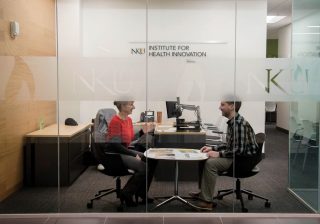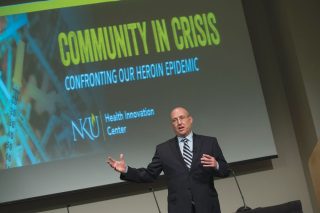We have a problem.
Our population is besieged by an epidemic that’s taking our children, parents and grandparents. It’s irrespective of race, career, age or any of the other socially constructed differences we use to easily categorize one other.
The problem is addiction.
In the 1990s, pharmaceutical companies embarked on a massive trust campaign, reassuring the health care community against concerns over the addictive properties of prescription painkillers. The resulting uptick in painkiller prescriptions ignited a firestorm of potentially fatal dependencies on prescription opioids. And although the truth about opioids’ massive addiction potential is now broadly understood, the fallout persists with prescription opioid, heroin and fentanyl deaths in America.
How bad is it? Overdose deaths now outnumber fatalities from car wrecks. According to the National Institute on Drug Abuse, in 2015, some 2 million Americans suffered from a substance use disorder related to prescription opioid use, while almost a million people in the United States reported using heroin in 2016. Here in the Greater Cincinnati region, fentanyl has become the name of the drug game. The Cincinnati Enquirer reports that usage of the synthetic super-opioid—it’s at least 50 times as potent as heroin—has exploded in recent years, and Hamilton County deaths from fentanyl overdoses are up 1,000 percent since 2013.
Our region is in the eye of the opioid-addiction storm. Kentucky’s drug overdose death rate is the third-highest in the U.S., and 2017 saw an 11.5 percent increase over 2016—part of a total 40 percent increase over five years.
Traditional approaches to addiction—legislation, law enforcement, emergency response, treatment centers, awareness campaigns—are all critical components of managing the epidemic, but a crisis this big calls for a comprehensive approach. Universities across the nation, as repositories of intellect, research-based solutions and skilled care, offer a wealth of resources for helping in the fight against the opioid crisis. And Northern Kentucky University, in the heart of a Midwest area struggling for survival, is giving all that and more in the fight against addiction fatalities.
In the following stories, we’ll take a look at just a few examples of how, campus-wide, NKU is putting all of its resources into the fight for our population’s health.















